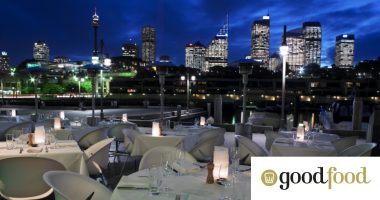As you come out of Newcastle’s grand Grade I-listed railway station, opened by Queen Victoria in 1850, you are reminded that the city’s wealth for more than a century rested on coal mining, railways and shipbuilding. John Graham Lough’s 1862 heroising monument to civil engineer George Stephenson, who opened his pioneering locomotive works here in 1823, is just outside. The River Tyne is a stone’s throw away.
At the start of the 20th century, about half of the world’s ships were being made in north-east England, alongside the rivers Tyne, Wear, Blyth and Tees. In Sunderland alone the industry employed 12,000 men, a third of the town’s adult population.
Since the 1930s these industries have been in gradual decline, with shipbuilding now concentrated in China, Japan and South Korea. Sunderland stopped shipbuilding in 1988, while the Tyne’s last working shipyard closed in 1993. But although the decline of heavy industry exacted a huge toll on the local economy, it has left behind a wealth of knowledge and infrastructure. While many lament the loss of the pride and prosperity that characterised the region in the past, some have found ways to adapt these heritage skills for the future.
Luxury custom-made, hand-finished metal furniture and lighting company Novocastrian, based in Newcastle, states proudly on its website: “We are the sons and daughters of the Northern shipbuilders and coal miners who drove the industrial revolution.” Founders Richy and Paul Almond come from a lineage of Tyneside shipbuilders and grew up in a mining village.
Twenty-nine years ago, their father Paul redirected metalworking skills he had acquired in shipbuilding into a sheet metal fabrication company serving customers including Nissan. Paul junior started his own business in metalwork, while Richy trained as an architect.

Richy then set up a London-based interior design business with his partner Pernille Lind. Returning frequently to Newcastle, he found inspiration for Novocastrian in the area’s workshops and skilled workers. “We started out, my brothers and I, just working nights and weekends experimenting with patination, cutting and welding,” says Richy. “Now we are a core team of 12.”
In 2014 they made their first product, a sleek table with a Cumbrian slate top. Since then they have produced mirrors, tables and cabinets. The most recent collection of rounded, folklorish tables, Hagstones, is a collaboration with Britannicus Stone, specialists in rare stones from around the British Isles.
“We are very inspired by the industrial heritage of the region,” says Richy. Last autumn they launched the Insulator Collection of lighting, in homage to the glass and ceramic insulators used in the late Victorian era on overhead wires and pylons.
This industrial heritage is reflected in Novocastrian’s location, just outside Newcastle city centre on the Armstrong estate, named after the pioneering 19th-century industrialist and engineer William Armstrong.
Novocastrian’s lead metalworker, Marcus Rowan, completed a traditional shipbuilding apprenticeship in 2002, one of the last generation of people in Newcastle to do so.
But not much of the former industry has survived. After the area’s shipyards closed, they were dismantled and the land was turned to other uses. Shipbuilding has, to some extent, been replaced by car manufacturing, with many automotive component manufacturers located here. Novocastrian has previously offered apprenticeships to students on Sunderland and Gateshead Colleges’ automotive courses.
The Almonds are not alone in bringing expertise learnt from heavy industry into the home. In 1993, Chris Taylor, a son and grandson of miners, decided to take an apprenticeship with Clifford Chapman Metalworks, in Washington, near Sunderland, as a coppersmith sheet metalworker. He grew up in a pit village near Eden Colliery, which was closed in 1980.
“I wanted a trade that I could travel with,” he says. After a number of years working for different companies, in 2010 he set up TaylorHood Metalworks with Neil Hood, whom he had met on that original apprenticeship. The company specialises in bespoke metal staircases and architectural balustrades. “Most of the bespoke metalworks in the North East are born from shipbuilding,” says Taylor. “Everything has grown from that era.”
Taylor says competition among the many metal businesses in the North East for skilled workers is fraught, as few students are drawn to the dwindling trade. “Anyone with any talent in metalworking is snapped up,” he says. TaylorHood employs the man who taught the founders and who now teaches their young apprentices: “A lot of the old ways are still relevant on the floor,” Taylor says.
This revival is happening outside the north, too. Novocastrian’s third company director, Hartlepool-born Andrew Bulley, the son of a welder, worked for many years for Based Upon, located in the former Woolwich dockyard in south London. Fellow northerners Ian and Richard Abell founded their business in 2004, initially using the “liquid metal” technique (where thin layers of liquid metal are sprayed on to surfaces) to create bespoke furniture and art.
Although their techniques and materials are high-tech — from cast bronze to explosive-formed aluminium — their location is historic. The site was occupied from 1863 by the Siemens Brothers Telegraph and Telephone Works, which manufactured submarine cables and then telephones until 1968.


While their high-end products are worlds away from the industrial manufacture that once took place here, they are still reliant on that knowledge. Their recent piece “Rest”, commissioned by the Equinox Hotel in New York, required them to create a huge metal press to shape the sculpture, which, owing to its size, had to be finished in a shipyard (in the Netherlands, ironically).
Another business capitalising on the infrastructure of previous heavy industry is Tom Faulkner Ltd, whose manufacturing base is in the former Swindon Works at Swindon railway station, in Wiltshire. The works were opened in 1843 by the Great Western Railway to serve as a central repair station for the locomotives on Isambard Kingdom Brunel’s new railway. The railway tracks once used to shunt carriages and engines from the main line to the repair shed are still there today.
Rapidly, Swindon became the west England centre not just for the repair but also for the manufacture of rolling stock and rails, employing at its height more than 14,000 people. The works closed in 1986. Nearly 10 years later, designer Tom Faulkner, whose family home is close to Swindon, met two metalworkers “making metal skips and shelves in a corner of the estate”, he says. He commissioned them to make him a chair. Next he bought the business, including the machines, enabling him to explore the translation of his clean-lined, geometric design ideas into metal.
For the past 27 years his head of production has been Nigel Bellamy, who was trained in metalworking by British Rail in the late 1980s. “The things we make are difficult to fabricate,” says Faulkner. “Nigel works out how we can do it.” His latest collection has an organic aesthetic, softened by a less highly polished finish than his other work.
“What I love is the engineering heritage, which you feel all around you,” says Faulkner. With all the wealth of material knowledge and metalworking skill still alive in pockets across the country, it may be in these small-scale, high-production value businesses that one path to the future lies.
Find out about our latest stories first — follow @FTProperty on X or @ft_houseandhome on Instagram
Also Read More: World News | Entertainment News | Celeb News









